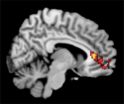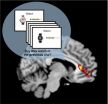(Press-News.org) DURHAM, N.C. -- Holiday shopping can be mentally exhausting for anyone. But a new Duke University study finds that older adults seem to need extra brainpower to make shopping decisions -- especially ones that rely on memory.
The study appearing Nov. 19 in the Journal of Neuroscience suggests that older shoppers use an additional brain area to remember competing consumer products and choose the better one.
"The study gives a bright picture, actually," said lead author Nichole Lighthall, a postdoctoral researcher in Roberto Cabeza's lab at Duke's Center for Cognitive Neuroscience. "It suggests that for healthy older adults, even though their memory might not be as good, they can naturally recruit other brain regions that are not typically involved in the task. It seems that it allows them to perform at a higher level."
The study used functional magnetic resonance imaging (fMRI) -- a noninvasive technique that indirectly measures changes in brain activity -- to scan the brains of 20 younger adults (25 years old, on average), and 22 older adults (around 70 years old) while the participants viewed pictures of consumer products with star ratings indicating their value, similar to online shopping sites like Amazon.com.
Participants were asked to "keep shopping" by navigating from one screen to the next while trying to remember the value for each consumer product they encountered. They then had to select the better of two competing products, such as two different sweaters, based on which was a better value.
Some versions of the task were easy. For example, participants saw the first product, then the second product, and were asked to select the better one.
In the more challenging trials, participants were shown the first product, and then had to learn about or "buy" several unrelated items before being shown the second, competing product and making a decision.
Young and old adults made decisions with similar speed and accuracy. In addition to the normal patterns of brain activity, however, older adults used a part of their brain called the ventromedial prefrontal cortex (vmPFC) as memory demand increased.
The vmPFC is known to be involved in processing risk calculations and it has been shown help people assign values to rewards and emotions.
In this study, the more active the vmPFC was, the better participants performed at the task. Although researchers couldn't prove that the heightened brain activity caused participants to perform better, "it seemed that (the enhanced brain activity) was actually helping them, it was beneficial to their performance," Lighthall said.
Some of the higher-scoring subjects had good general strategies for memory. "They brought in stories about (the products) that related to their lives," Lighthall said, or they translated the star ratings into words that were more meaningful to them, like "terrible" or "awesome."
The vmPFC, it turns out, is also involved in autobiographical memory and self-referential thinking, Lighthall said.
The new results point to a need to simplify decisions for seniors, especially those that are more important than holiday shopping.
In medical-decision making, for example, selecting the best insurance plan can be intimidating. "What often happens is that people will delay the decision if it's too challenging," Lighthall said.
"Our study suggests that, to the extent that decision-making or economic choice rely on memory, those situations are really going to be harder and require a different type of processing for older adults," she said.
But if the researchers' interpretation of the vmPFC's role is confirmed, then it could point to potential strategies to rehabilitate decision-making deficits in older adults, said Cabeza, a professor of psychology and neuroscience at Duke, and a member of the Duke Institute for Brain Sciences.
"For example, future studies could identify the conditions that lead to vmPFC recruitment during decision-making and explore ways of promoting these conditions when older adults make decisions in real life," Cabeza said.
INFORMATION:
This work was supported by National Institute on Aging (R01 AG034580,
T32 AG00029).
CITATION: "Functional Compensation in the Ventromedial Prefrontal Cortex Improves Memory-Dependent Decision in Older Adults," Nichole R. Lighthall, Scott A. Huettel, Roberto Cabeza. Journal of Neuroscience, November 19, 2014. DOI:10.1523/JNEUROSCI.2888-14.2014
LA JOLLA, CA--November 18, 2014--"Protein misfolding" diseases such as cystic fibrosis and Alzheimer's may be seriously exacerbated by the body's own response against that misfolding, according to a new study led by scientists at The Scripps Research Institute (TSRI).
The researchers examined patient cells and animal models of several diseases that feature chronic protein misfolding and found that in each case, a cellular defense system against protein misfolding, called the "heat shock response," was overactive. Reducing its activity lessened the signs of disease and ...
Sleep is a critical period for memory consolidation, and most people don't get enough. Research has shown that even brief periods of sleep deprivation can lead to deficits in memory formation.
In a new study, published in the Journal of Neuroscience, a team led by scientists from the University of Pennsylvania found that a particular set of cells in a small region of the brain are responsible for memory problems after sleep loss. By selectively increasing levels of a signaling molecule in these cells, the researchers prevented mice from having memory deficits.
Robbert ...
LOS ANGELES (STRICTLY EMBARGOED UNTIL 5 P.M. EST on NOV. 11, 2014) - Lou Gehrig's disease, also known as amyotrophic lateral sclerosis, or ALS, might damage muscle-controlling nerve cells in the brain earlier in the disease process than previously known, according to research from the Cedars-Sinai Board of Governors Regenerative Medicine Institute. The findings, published in the Nov. 12 Journal of Neuroscience, could shift researchers' attention from the spinal cord to the brain's motor cortex as the disease's initial point of dysfunction.
"In this study, we show the ...
Home exercise can ease feelings of hopelessness in people with coronary heart disease, according to a small study presented at the American Heart Association's Scientific Sessions 2014.
Feeling hopeless can be dangerous because it can discourage people from taking healthful steps such as exercising or quitting smoking, said Susan L. Dunn, Ph.D., R.N., lead author of the study and a professor of nursing at Hope College in Holland, Michigan.
People with hopelessness may also suffer from depression, which is marked by a loss of interest in activities they normally enjoy.
"For ...
A new trans-satellite wireless 12-lead ECG can identify the most severe type of heart attack swiftly and save significant time from ambulance to angioplasty, according to research presented at the American Heart Association's Scientific Sessions 2014.
An ECG measures the electrical activity of the heart and helps medical personnel determine if a person had an ST-elevation myocardial infarction (STEMI). Angioplasty, also known as percutaneous coronary intervention (PCI), is a procedure in which an inflatable balloon opens a blocked artery to restore blood flow to the heart.
During ...
In a small study in Japan, people who stopped smoking didn't face increased death risk if they gained weight, according to research presented at the American Heart Association's Scientific Sessions 2014.
"Quitters had a significantly lower risk of death compared to smokers regardless of their weight change after they stopped smoking," said Hisako Tsuji, M.D., lead author of the study.
Researchers compared deaths from all causes in 1,305 Japanese adults who quit smoking to deaths among 2,803 Japanese smokers. Participants in both groups were 65 percent men, average age ...
Using a smart phone app for education and feedback about heart-healthy behavior may decrease the risk for heart and blood vessel disease among young black women, researchers said in a pilot feasibility study presented at the American Heart Association's Scientific Sessions 2014.
"We need to raise awareness among women and their healthcare providers of gender and racial differences in cardiovascular disease," said Jo-Ann Eastwood, Ph.D., study lead author and associate professor at the University of California, Los Angeles School of Nursing. "Women are social by nature, ...
Adults counseled on their genetic risk of coronary heart disease believe they have more control over their fate, according to research presented at the American Heart Association's Scientific Sessions 2014.
Researchers examined the impact of disclosing risk of 10-year heart disease with or without genetic risk information to 207 patients (48 percent male, average age 58) participating in Myocardial Infarction GENES (MI-GENES), a randomized controlled study.
The study's key elements included a risk score based on established risk factors and a genetic risk score based ...
A heart-healthy diet is related to decreased blood pressure measurements, researchers said in a study presented at the American Heart Association's Scientific Sessions 2014.
Elevated blood pressure is a major risk factor for the development of heart and blood vessel disease. It is known that following U.S. dietary guidelines can decrease the risk for heart and blood vessel disease, their effects on specific blood pressure measurements were unclear. In this study, researchers found that blood pressure measurements were higher among study participants who did not follow ...
Using social media to deliver both emotional and concise medical content as well as the need for heart transplants and organs resulted in a higher engagement with members, according to research presented at the American Heart Association's Scientific Sessions 2014."
"Social media has not been used extensively in the healthcare industry, and if we can effectively bridge the gap between health education and medicine using social networks and peer influence, we can potentially have many beneficial applications to the healthcare system," said Mohammad Soroya, lead author ...



